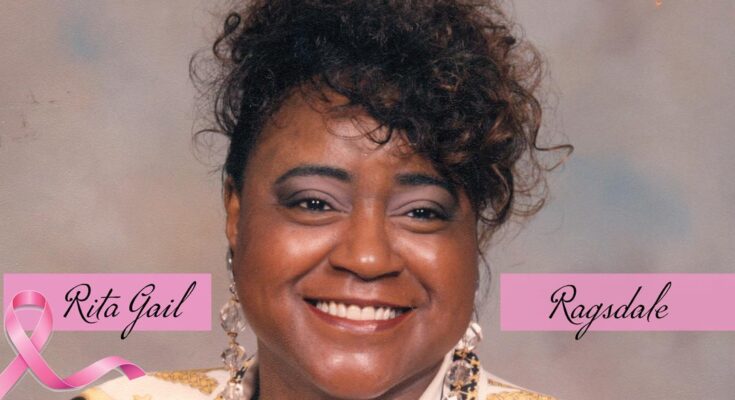A tribute to Rita Gail Ragsdale of Atlanta, GA – October 18, 1950 – May 19, 2014.
On May 19, 2014, my sister, Rita Gail Ragsdale, lost her courageous battle with breast cancer. Born on October 18, 1950, Rita was a beacon of strength, pride, and a civic duty warrior. Her favorite church song was “Jesus Loves Me,” and she did spread love! Just a year before her diagnosis, she proudly walked in the Breast Cancer Run/Walk in Atlanta, Georgia, full of hope and determination. Her spirit continues to inspire me and many others as we raise awareness about breast cancer, particularly its devastating impact on African American women in Georgia and around the country.
Breast cancer is a relentless disease that affects more women globally than any other form of cancer. In the U.S., African American women face a disproportionately higher risk of aggressive breast cancer and have the highest mortality rates associated with the disease. Despite advancements in cancer treatment, African American women still face a 40% higher mortality rate than White women, and this disparity grows even more significant among younger women.
One of the more aggressive forms of the disease, triple-negative breast cancer (hormone receptor-negative/HER2-negative), is more prevalent in African American women. This subtype, often harder to treat and associated with worse outcomes, further highlights the urgent need for increased education, resources, and support in our community.
While genetics play a role in breast cancer, environmental factors and product use are increasingly recognized as significant contributors. Many cosmetic products marketed to African American women contain harmful chemicals linked to cancer. Hair relaxers, skin lighteners, and nail treatments are common beauty products that often contain toxic ingredients such as formaldehyde, hydroquinone, phthalates, and mercury. These chemicals are known carcinogens and endocrine disruptors, and their frequent use increases the risk of breast cancer.
For instance, women who use hair dye at least every 5–8 weeks face a 60% higher risk of breast cancer. Skin lighteners, often marketed as spot treatments or acne solutions, can contain dangerous substances like mercury, which poses a serious health risk not just to the user but to those around them, particularly children. Products like acrylic nails and Brazilian blowouts, common in beauty routines, also expose women to carcinogens daily. Many African American women work in industries where they are occupationally exposed to these toxic substances, further compounding the risk.
To reduce these risks, it is crucial for African American women to become informed consumers. Look for beauty products that avoid harmful chemicals and prioritize safety. Tools like Clearya and ThinkDirty can help identify safer alternatives, and resources like the Non-Toxic Black Beauty Database provide verified non-toxic brands.
In memory of Rita Gail Ragsdale and countless other women whose lives have been affected by breast cancer, we must take action. By raising awareness, advocating for safer products, and supporting early detection and treatment, we can fight back against this deadly disease. Rita motivated me, and I hope her story inspires others to take steps toward preventing breast cancer in their lives and communities.
Let us continue to honor the legacy of those we have lost — like Rita Gail Ragsdale — by educating ourselves, family and friends —
and making healthier choices.


